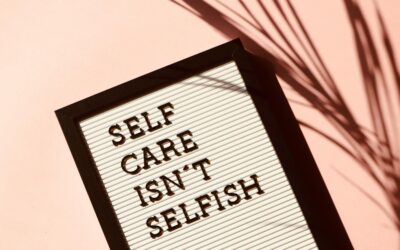A Word
This article on how mental illness affects families is in support of any member of my family who has been negatively affected by my behavior. My behavior at its worst frequently includes verbal attacks, emotional abuse, bullying, and harassment to name a few. While I’m not proud of this and am doing my best to make amends, I take full responsibility for it and will never use mental illness as an excuse. Although I may never know the full extent of how this has impacted specific family members, I try to see things from their perspective.
One thing that’s for sure is that mental illness is confusing and frustrating for both the person suffering and those who love them. As the subject of mental health continues to grow in popularity, it is my sincere hope that families will obtain more useful skills, tools, and resources to cope and heal.
The Elephant in the Room
how mental illness affects families
Mental illness can be the enormous elephant in the family home. It is significant, and it cannot and should not be ignored or swept under the rug. How mental illness affects families varies, for families differ, and different family members respond in different ways. Our familial roles tend to dictate how we react, how we might fight back, and how we learn to cope.
Parents
According to Our Healthy Minds, for the parents of a child living with mental illness (whether that child is a minor or an adult); parents can usually be the ones who institute the process of finding services and assistance for their child. And at times parents may need to cope with a mental health care system that can be reluctant to acknowledge their part in their offspring’s recovery process.
Although according to research, the family is not to blame for mental illness, parents, in particular, might have issues with overcoming guilt. Comprehending that their child indeed has a chronic health condition (like leukemia or cystic fibrosis) may help to reduce their guilt.
Besides, if there are other children in the family, parents can be concerned about how their other children are coping. The parents may struggle with trying to give their other children attention while, at the same time, managing their mentally ill child’s care. My parents did the best they could to treat me and my brother equally when we were children. Regardless, my behavior issues commanded more of their attention which meant less for my younger brother.
Siblings
Other siblings may be confused, angry, stressed, saddened, or fearful for a brother’s or sister’s health and future. Siblings can feel the stigma, personal shame, and even ‘survivor guilt’. They may feel bad because they are unaffected, healthy, and doing well. Family life may revolve around their mentally ill sibling. They can be fearful that mental illness is inherited, and they or their children might develop it. They may have concerns that they will eventually become their sibling’s primary caregiver or support system.
Siblings can sometimes benefit from getting counseling of their own. They may be able to get it via a school or university, an employer, a family resource center, or their family’s health professional(s). If siblings are and feel supported, they are more likely to achieve their own goals and also to contribute positively to their brother’s or sister’s overall quality of life. They may need to be encouraged to ask questions and to share how their sibling’s illness (and its dynamics within the family) makes them feel. It may be helpful to assure them about their mental health. They should be encouraged to have relationships and activities outside of the family.
Siblings of the person living with a mental illness can experience a wide variety of emotions. These include:
- Embarrassment about being with their sibling.
- Feeling confused regarding a sibling’s altered behavior.
- Envy and jealousy of parental attention.
- Resentment about being different from other families.
- Personal fear of developing a mental illness or passing it on to their offspring.
According to Healthy Place, siblings can also feel like outcasts.
Siblings’ experiences vary depending on several factors such as how close they are to their sibling, their age, birth order, and the mentally ill sibling’s own willingness to seek and accept treatment. The behavior of other family members, including how they deal with the situation, can also make an impact on how siblings personally handle a brother or sister’s mental illness.
Young Children
For younger children, their emotions can vary. They can be confused or afraid when it comes to the changes in a family member. If you encounter this scenario, this is where age-appropriate information is helpful, along with openly discussing the family member’s illness, to alleviate their concerns and fears. They should share their feelings about the illness and the family members affected by it are normal. These discussions can be an opportunity to work out with younger children how best they can cope and feel less alone and isolated.
Helping younger children can involve:
- Talking about your feelings and opening up the floor so they can share theirs. Discuss the topic openly but in a manner that lets them know they are neither abandoned nor helpless. If they are old enough to understand, share longer-term plans for ongoing support. If they are worried they will develop a mental illness, or their future children might, there are research materials and websites that cover the statistics of inheriting a mental illness.
- Give them age-appropriate information about the illness. Your local library or school might have appropriate reading materials. Library staff, in particular, may be able to recommend appropriate reading material. Reading helps younger children to understand they are not alone.
- Make time for them. They need to feel safe and secure, and that they matter. They need to know that the family is not just about the illness. You can discuss the issue during these outings, or not.
- Give them a safety network. A safety network includes contact information for trusted adults they can contact if they need help. Give them clear instructions on what to do in case of an emergency. Being prepared will help them understand you have considered the eventuality. Explain the sorts of crises that could come up and make it clear that their welfare and safety come first.
- Seriously consider counseling or other professional assistance to help them.
Spouses
Having a spouse with a mental illness, and sharing living quarters with them, can place stress and strain on the preexisting relationship. The mentally ill person’s spouse can conceivably be navigating shame and guilt, or even blame themselves. Physical and social intimacy can change. And both partners may mourn the loss and change of the life they had foreseen initially together.
Adult Children of a Parent Living with Mental Illness
Growing up with a family member who lives with a mental illness has a lasting impact well into adulthood. It can affect how the adult child sees him or herself, along with self-esteem and personal identity. However, there can also be strengths, such as the ability to be nonjudgmental, caring, compassionate, and tolerant. An adult child may feel more self-reliant or imaginative and focused. Adult children may also appreciate everyone’s unique strengths – even a mentally ill parent’s – from having to pull together as a family to cope.
Finally, that elephant in the room is not going away. But it’s still our elephant, and we still have to deal with it. And we can do that as a family, together, and we can cope and heal.



